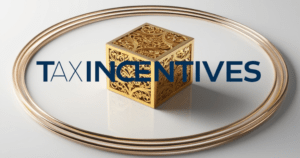Introduction
Across the world, tax authorities have been accused of taking arbitrarily tax decisions. Closer home, Kenya Revenue Authority (KRA) has been accused of the same.
(Post continues after the photo)

(Photo by Waka – The difference is clear)
More recently KRA was sued by Kenya Petroleum Refineries Ltd (KPRL) seeking to quash tax liability demand amounting kshs 1.63 billion. This court case was determined in the High Court of Kenya in October 2017. The case took more than six years since the taxpayer was issued with the demand notice in 2011.
Kenya Petroleum Refineries Ltd
Before 2013, oil marketers were importing crude oil to be refined in Kenya before retailing it. The oil refining was being undertaken by Kenya Petroleum Refineries Ltd (KPRL).
This was a private company which was initially owned by the government and several private companies mostly oil marketers.
Over the years, the fundamentals of the oil industry changed. There were new entrants in the industry. The management and operations of the oil refinery had many challenges. Even the world oil market had its challenges.
By 2013 when the last drop of imported murban crude oil was refined, Essar Energy of India and the Kenyan government were the only shareholders each holding 50 % shares.
The two shareholders have since parted company and Essar was paid kshs 500 million. The Kenyan government is now the sole shareholder of KPRL.
In the meantime, the government has asked Kenya Pipeline Company (KPC) to take over KPRL and operate it. This is in preparation for the provision of storage facilities for the crude oil from South Lokichar basin in Northwest Kenya soon.
The tax case
KRA was demanding kshs 1.63 in principal tax, penalties and interests from KPRL. The demand letter was dated 5th December 2011. Since then, the tax bill must have been way above the initial amount demanded – because of tax interest.
For the case to have been determined by the High court, it must have hit a deadlock in KRA both at the Large Taxpayers Office (LTO) and the Tax Tribunal. Then KPRL had moved to the High Court.
Bases of the tax liabilities
KPRL had agreed with the oil marketers to use some of the oil in the furnaces when refining the oil. Some of the oil marketers who owned the oil were also shareholders.
The crude oil was being refined without import duty having been paid. This, in essence, amounted to as KRA aptly put it use of goods from a bonded warehouse without paying duty.
The oil was owned by the oil marketers while the import duty was owned by the government. Both were a shareholder in the venture.
KPRL was allowed some 45 years ago by the government – Ministry of Finance then (KRA was not in existence then) to use the oil duty-free. After all, wasn’t the Kenya government was a major shareholder.
In the meantime, KPRL was audited several times and the issue was never raised. Then around 2011, KRA audited KPRL and raised the tax liabilities that landed both in court.
The ruling
The ruling by the High Court was that KRA should not have demanded the tax debt from KPRL. This was informed by the fact KRA had audited the organization several times.
During those times, KRA did not raise the issue nor inform KPRL it had revoked the earlier agreement and the organization was duty-bound to pay duty on any oil it was using.
KRA’s action of raising tax without informing KPRL was termed as an arbitrary action. However, this decision raises several tax questions.
Tax questions
The following are seven tax questions.
a) Period of tax decision
KRA has been in existence for the last 22 years. The question is: are tax concessions and decisions that were entered into before its existence by its predecessor the Ministry of Finance on any tax matters still binding?
This is because KRA is the sole body tasked with tax revenue collection in this country. Hence, KRA should have tracked all the concessions and agreements and advised the National Treasury where necessary.
b) Import duty exemption
What had informed the decision to exempt the oil used by KPRL from duty yet it was subject to duty? This act amounted to self-supply by the government. Had it been any other taxpayer, tax liabilities would have been raised.
c) Invoices from the oil marketers
Was KPRL invoiced by the oil marketers some who were shareholders for use of their oil which was for sale? If not, how did the companies account for the oil expense when reporting for income tax?
d) Time-lapse
Why did KRA not discover this anomaly earlier despite several tax audits in KPRL over the years?
e) Tax exemption
How long can a tax exemption last including the current ones?
f) From revoking to tax
After KRA revokes an earlier tax concession or agreement, within how long should the taxpayer be informed to reverse the situation -start levying the tax. Again how much time should the taxpayer be allowed to start the new operations?
The answers to these questions are important since KPRL is not the only company that has been enjoying long-standing concessions and agreements.
Tax lessons
From the High Court decision, it is apparent that any decision by KRA must be communicated to the taxpayer before any action is taken. In this particular case, KRA ought to have informed KPRL that the earlier arrangements were no longer tenable.
This failure is what informed the high court in its ruling. The lesson is that KRA cannot arbitrary revoke any earlier concession or agreement and take action without informing those affected.
There KRA must at all times inform the taxpayer on any changes that would affect the tax status of their operations.
Feel free to send us questions or topics on tax and investments in Kenya that you would wish to be covered in this Website.
Disclaimer
This post is for general overview and guidance and does not in any way amount to professional advice. Hence, www.taxkenya.com, its owner or associates do not take any responsibility for results of any action taken on the basis of the information in this post or for any errors or omissions. Kenyan taxpayers must always rely on the most current information from KRA. Tax industry in Kenya is very dynamic.
©Wakaguyu Wa Kiburi
[about-me id=”1″]
Email: taxkenya@gmail.com
Twitter: @taxkenya
Facebook: fb.me/taxkenya
Youtube: youtube/taxkenya.com shows


